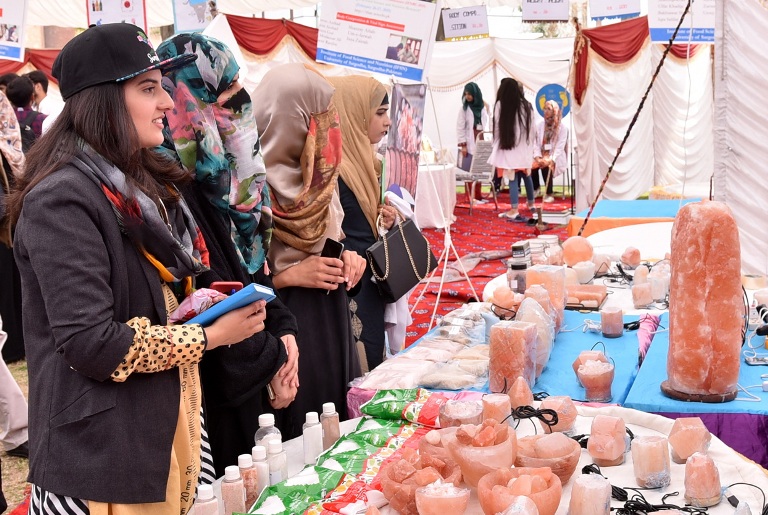International Food And Nutrition Research Conference (IFNRC-2019) And Food Expo
The Institute of Food Sciences and Nutrition, Sargodha University organized on February 26-27 a two-day international conference and food expo to raise awareness against social and economic consequences of malnutrition.
The conference titled 'emerging challenges in Food Science and nutrition research' was attended by researchers, academicians, scientists and food experts from USA, UK, Saudi Arabia, Malaysia and Iran.
The conference aimed at sharing the latest advancements, knowledge and technologies regarding food production and nutrition. Its themes include food processing and preservation, post-harvest technology, food waste management, food security, safety and quality, food microbiology and biotechnology, food chemistry, food service and management, halal foods, functional and medicinal foods, public health, clinical and industrial nutrition and indigenous foods.
While sharing his thoughts on ‘food engineering research – where from and where to’, Dr Keshavan Niranjan from the University of Reading, UK, said, “With chronic diseases becoming a major societal concern, and diet preferences being a major cause of chronic diseases, the link between food and health has become the dominant driver for food engineering research in the 21st Century.”
Dr Zulkifli Khair from the University of Technology, Malaysia, presented his research on ‘global issue on food insecurity in higher education institutes’. He suggested the researchers to conduct more systemic studies in colleges and universities worldwide, and recommend comprehensive and sustainable solutions, including holistic empowerment on food assistance programmes.
Dr Ahmed Hassan El-Ghorab from Jouf University, Saudi Arabia discussed 'future trends in sources of natural antioxidants from indigenous foods'. He called on maximizing the value addition of indigenous food by-products as a good source of natural antioxidant and replace high‐polygenic oils in the diet with high‐oleic oils, and to use alternative methods of food protection against autoxidation.
Marzieh Hosseininezhad from Research Institute of Food Science and Technology, Iran shared her research on 'Prebiotics and bacteria exopolysaccharides, food applications and potential health benefits'. She stressed on producing microbial prebiotics with major emphasis on the EPSs, their biosynthesis, properties and applications in Food industry.
Aslam Shaheen, Chief of Nutrition at the Ministry of Planning Development & Reform, Pakistan said that getting safe food had become an international issue, particularly in developing countries where the situation was worsening day by day. He said unsafe food was putting adverse impacts on human life and increasing death ratio.
Dr Masood Sadiq, President, Pakistan Society of Food Scientists and Technologists, shared his research on ‘Novel trends in functional foods and nutraceutical: role in economic development’. He said the developing countries could supply functional foods in the global market and gain economic returns by introducing therapeutic compounds from the indigenous raw materials. It was also helpful for farming community in developing links with private sector, he added.
Dr Javed Aziz, Country Director, IFANCA, Pakistan, shared his research on “Halal and Tayyab - path to prosperity”. He said with surge in the Muslim population, the Islamic or the “Halal” economy was expected to grow from $1.24 trillion in 2016 to $1.93 trillion by 2022.
Dr Anjum Murtaza, Director Institute of Food Science and Nutrition said that the aim to organize this conference was to discuss the issues relating to the agricultural sector and their solutions. He said the conference had been organized to raise awareness on social and economic consequences of malnutrition.
A large number of young food scientists and technologists from public and private sector institutes, industry, and R&D organizations also delivered their research findings and shared their ideas through oral and poster presentations.
At the Food Expo, around 30 food stalls and nutrition supervision stalls were established to provide the visitors with basic good nutrition guidelines.

